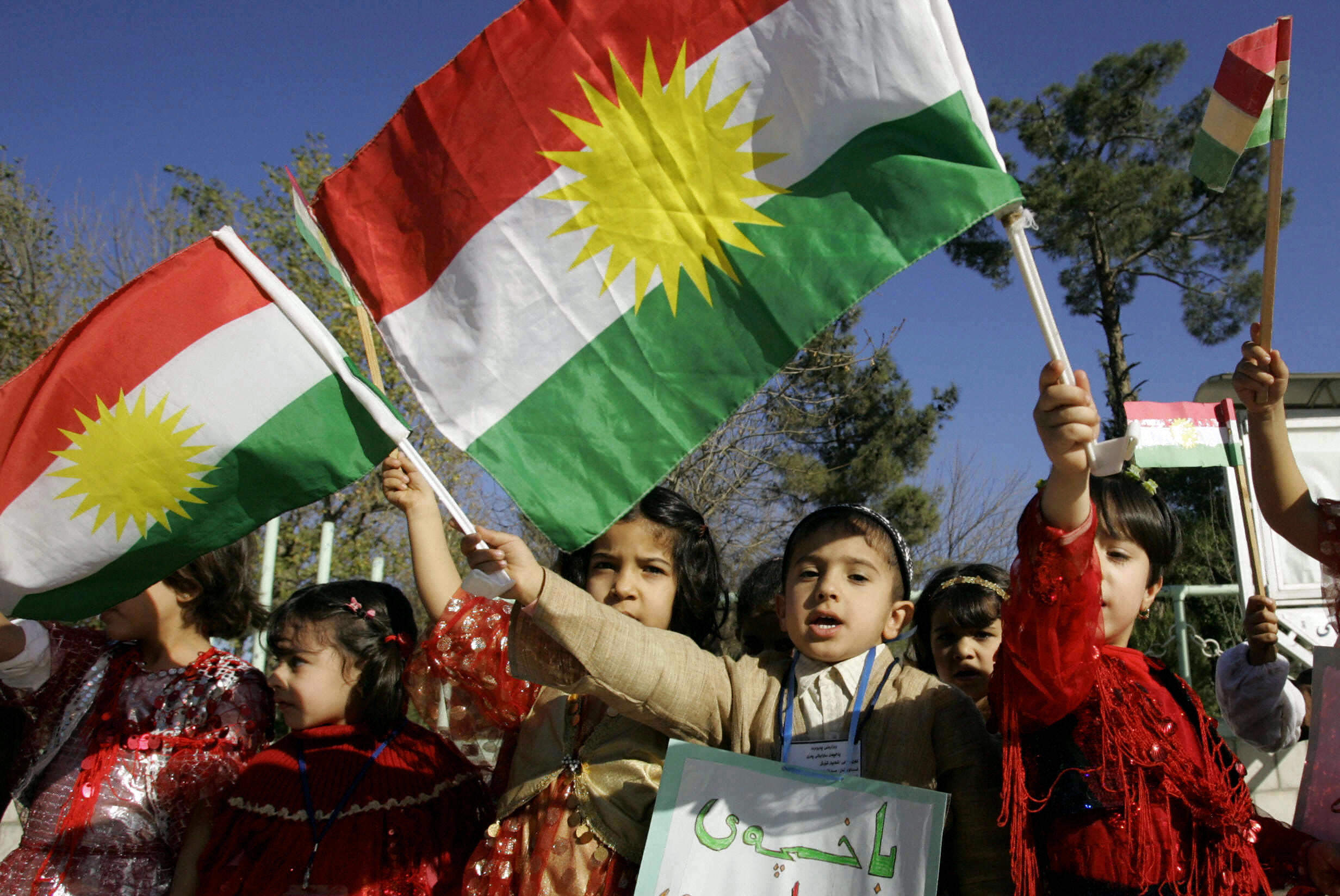
Twenty miles from Mosul, my driver hit the brakes but only because he had spotted a speed camera. Mundane here maybe but proof of a new determination to root out the reckless driving I have seen in a decade of criss-crossing Kurdistan.
We were travelling to the Kurdistani city of Duhok where you can see the lights of Iraq’s second city Mosul, occupied for two years by the jihadists of Daesh – the so-called Islamic State. As Kurdistani cops curb speeding, a few miles but light years away Daesh extorts locals to fuel a war machine based on systematic sexual slavery. The war with Daesh intrudes, of course. As we queued at the checkpoint a car pushed past us carrying a wounded Peshmerga to hospital.
Duhok is a colourful place whose dam reduces temperatures and which could become an even more popular tourist destination in time. I was there to present the all-party parliamentary group’s recent report at the new American University of Kurdistan.
The attractive university currently caters for 300 students but will grow. Eight years ago, I visited the American University of Iraq in the Kurdistani city of Slemani, on the other side of the country near Iran. It comprised several portacabins and 35 students but now has 1500 students on a gleaming campus. It nurtures new leaders and hosts vibrant political discussions to boost civil society. This is a place where politics once endangered people’s health until Saddam Hussein was evicted in 1991.
That year is the starting point of the new Kurdistan. The Kurds had been unhappily hitched to a unitary Iraqi state and endured decades of discrimination and genocide. They rose up, were beaten back but then saved by the British-initiated no fly zone. This allowed them to embrace democracy and expand education – from one to 28 universities today for five million people in normal times.
But their parliament is now in a state of suspended animation following street violence last year, the ejection of Gorran, the Change Movement, from government, and the expulsion from the capital, Erbil, of one of its MPs as the Speaker. I’m told differences between the parties can be overcome but the calm, even as most state workers are not paid and have taken wage cuts, should not delay urgency in tackling political divisions. Kurdistani democracy is young, it is true, but cannot afford to stand still.
I visited Parliament to meet the Chair of the Health Committee, herself from Gorran. She wants to work with MPs here to increase British frontline medical facilities for the Peshmerga and send soldiers who have lost limbs and need specialist treatment in Britain.
I also saw evidence of the economic crisis – half-finished roads and buildings awaiting an upturn. The crisis was sparked by the war, a massive increase in refugees and displaced people that added a third to the population, and falling oil prices on which the statist economy is dangerously dependent. But I also saw signs of people setting up new businesses – car washes and chop shops, for instance.
A new Academy for Enterprise and Management at the European Technology and Training Centre (of which I am a Director) in Erbil could help incubate small businesses and diversify the economy. The government must take radical action to match revenue and spending, stop ballooning debt, and charge for power and water. It has already halved spending on salaries but the fiscal gap continues to add to debt while oil prices are low.
The splendid Middle East Research Institute (Meri) think-tank also brought together ministers and intellectuals to honestly debate economic reform, and tackling waste and corruption. Unemployment stands at 600,000 but 70,000 people graduate every year and this requires a dramatic increase in jobs in new sectors such as agriculture, tourism and light industry so that Kurdistan transforms itself from a passive rentier economy. British expertise in restructuring ministries is also vital.
As is immediate assistance. The Americans gave the Kurds nearly a billion dollars in weapons and wages for the Peshmerga while I was there. And Britain finally agreed to supply new ammunition for heavy machine guns it gifted in 2014, together with training. But the Kurds receive little or no funding from the federal government in Baghdad, despite facing a common enemy. Baghdad recently descended into farce when demonstrators briefly occupied the parliament. Prime Minister Haider al Abadi, who I visited there in 2009, cuts a lonely figure. Baghdad is losing its grip.
The chasm between Iraq and Kurdistan is widening but they must co-operate to expel Daesh from Mosul and work out how they coexist. The days of foreign powers insisting they stay as one country are fading. I met many diplomats and business people who privately concede Iraq is nearly over. Senior Turks say they could accept an independent Iraqi Kurdistan, which must prove they can run their own show, and demonstrate independence is benign. Western countries could help broker an amicable divorce.
British MPs once toured the airport as it was being built in Erbil. As we sped along its runway – the fifth largest in the world – we agreed to ask Top Gear to visit. The petrolheads popped over and pronounced it one of the safest and most beautiful places they had seen. It seems increasingly likely that Kurdistan is hastening its own journey towards independence.
Gary Kent is the Director of the APPG on the Kurdistan Region, has visited Kurdistan and Iraq 25 times in ten years and writes in a personal capacity. He is writing a book on the coming Kurdistani Republic. He tweets @garykent






